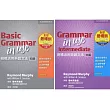The Peer Effect: Non-Traditional Models of Instruction in Spanish as a Heritage Language guides an important pedagogical conversation on the relevance of heritage language and literacy practices as resources for instruction, framing heritage teaching and learning as a social justice issue.
Presenting ethnographic and discourse analyses of a heritage peer tutoring program at a university in California, this book focuses on the ways in which the dynamic translanguaging practices that Spanish heritage language (SHL) peer tutors mobilize in a non-classroom, student-led, collaborative academic space directly respond to the literacy demands of academic language development. Based on the in-depth analysis of peer tutors’ translingual practices, the book advances scholarship in SHL pedagogy, providing concrete classroom-based examples, techniques, and activities that nurture equitable pedagogies for heritage student belonging, while challenging the deficit discourse that has traditionally governed the dialogue around literacy instruction for multilingual students.
This versatile volume is designed for educators, researchers, practitioners, and students in the fields of heritage language pedagogy, bilingual education, educational linguistics, and literacy studies for multilingual students.



 天天爆殺
天天爆殺  今日66折
今日66折 
























 博客來
博客來 博客來
博客來 博客來
博客來 博客來
博客來 博客來
博客來